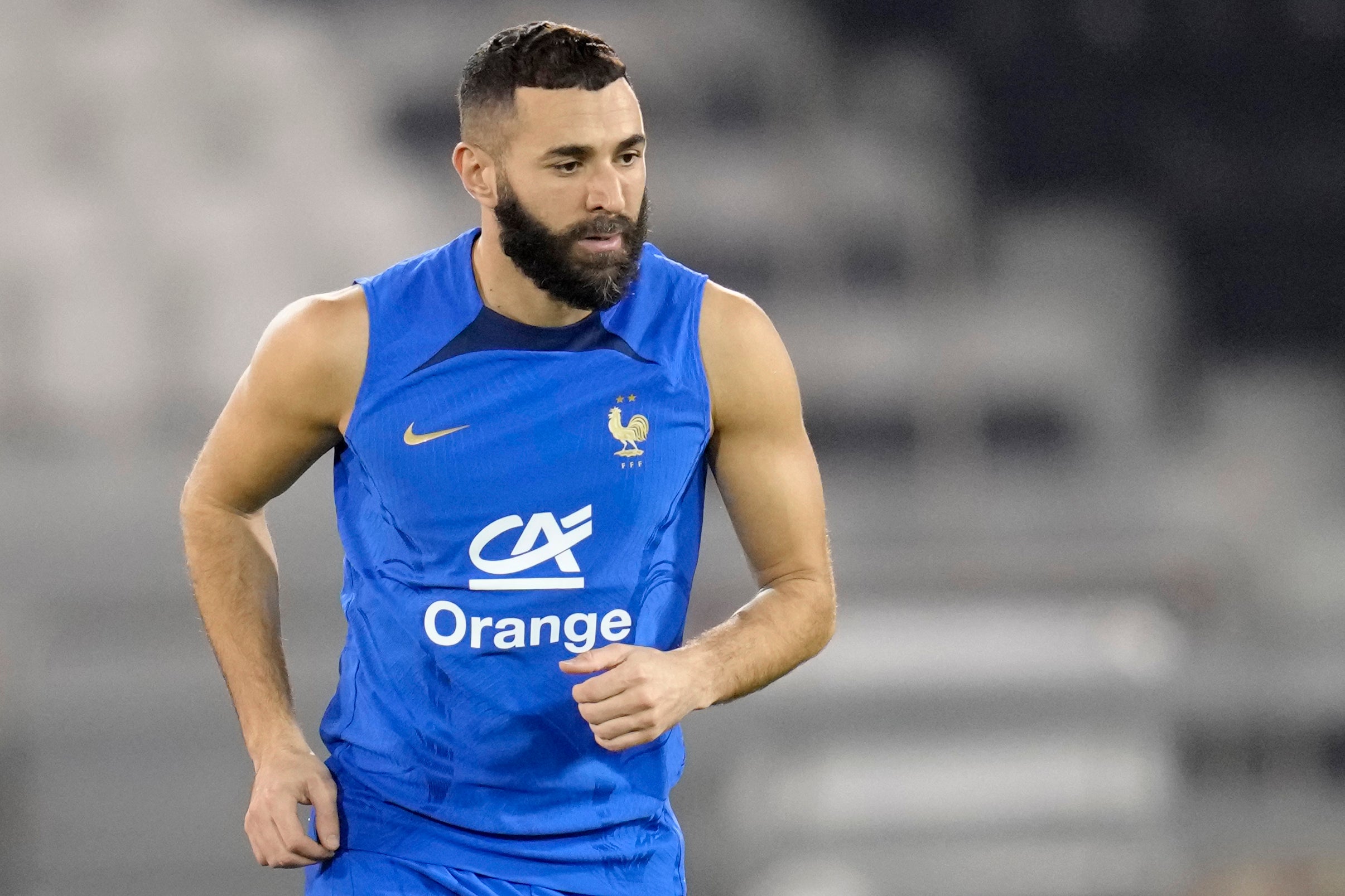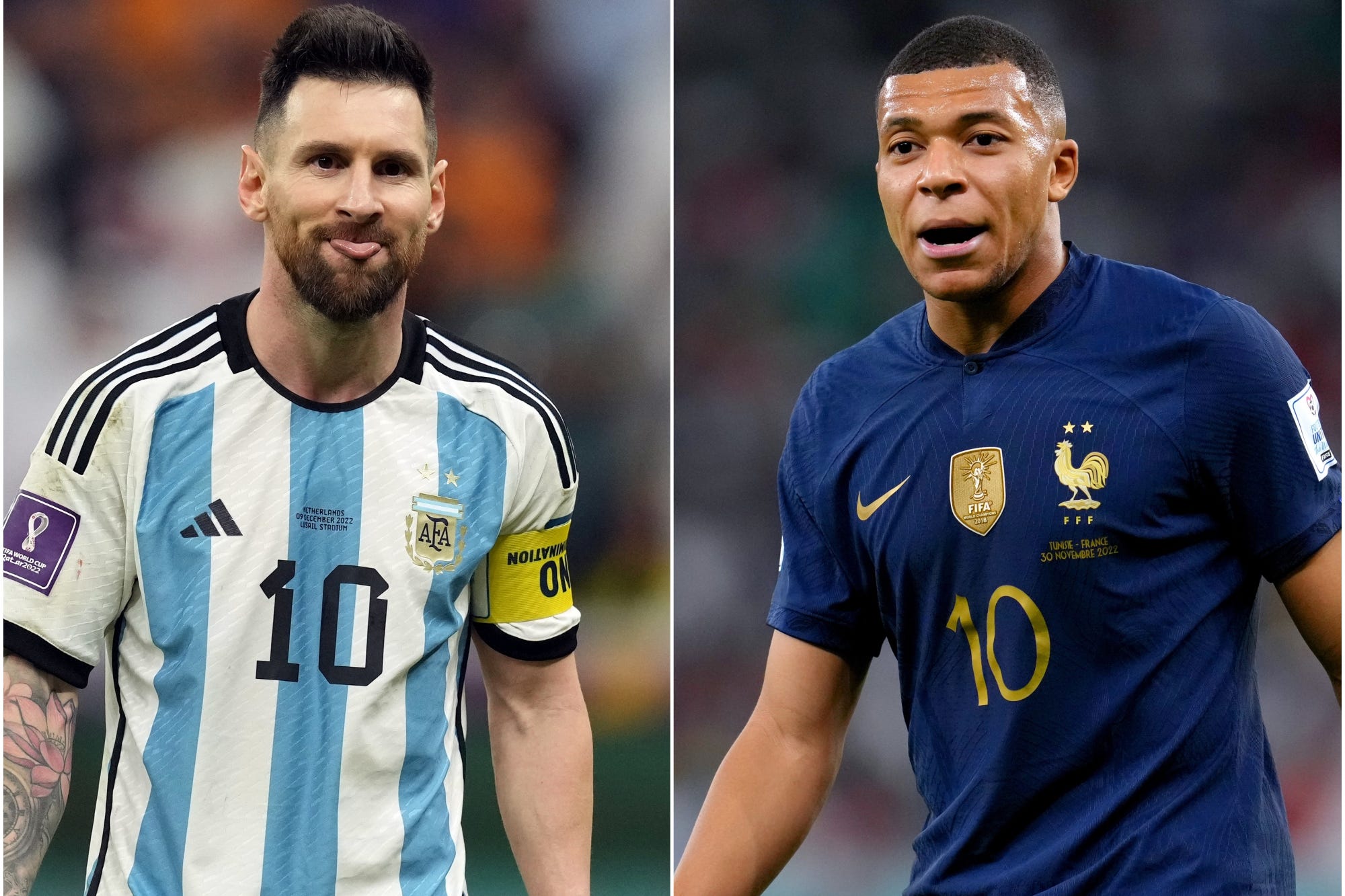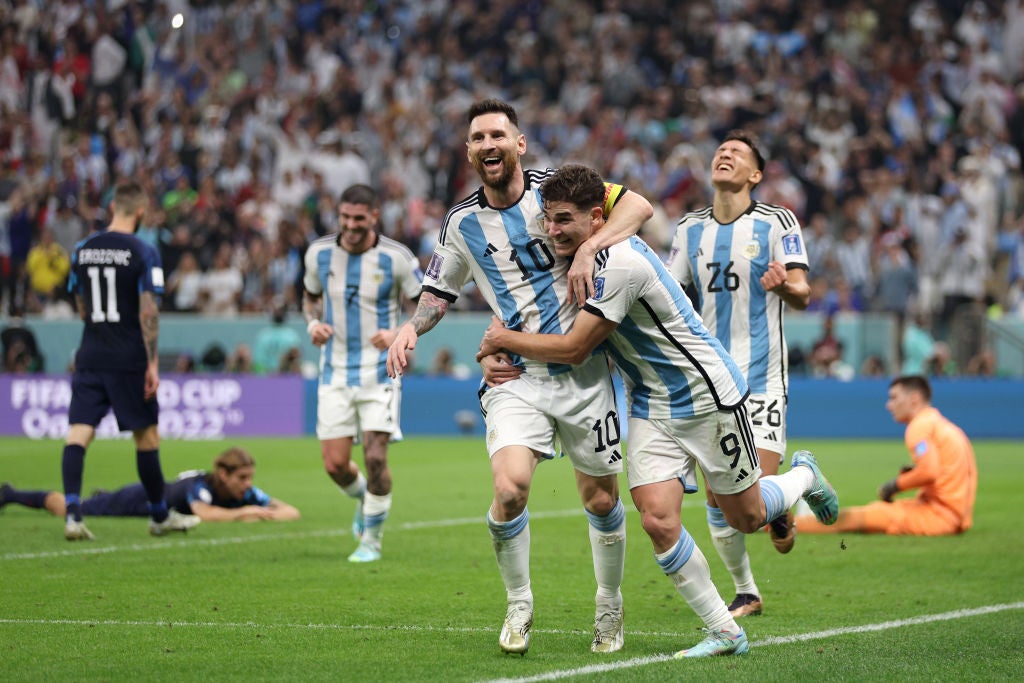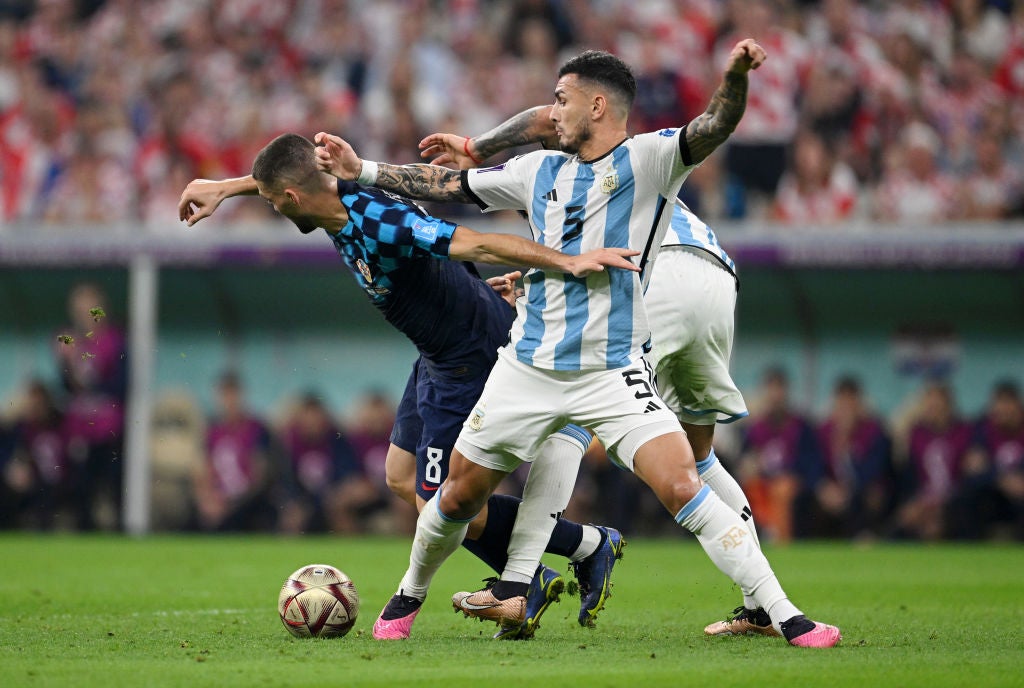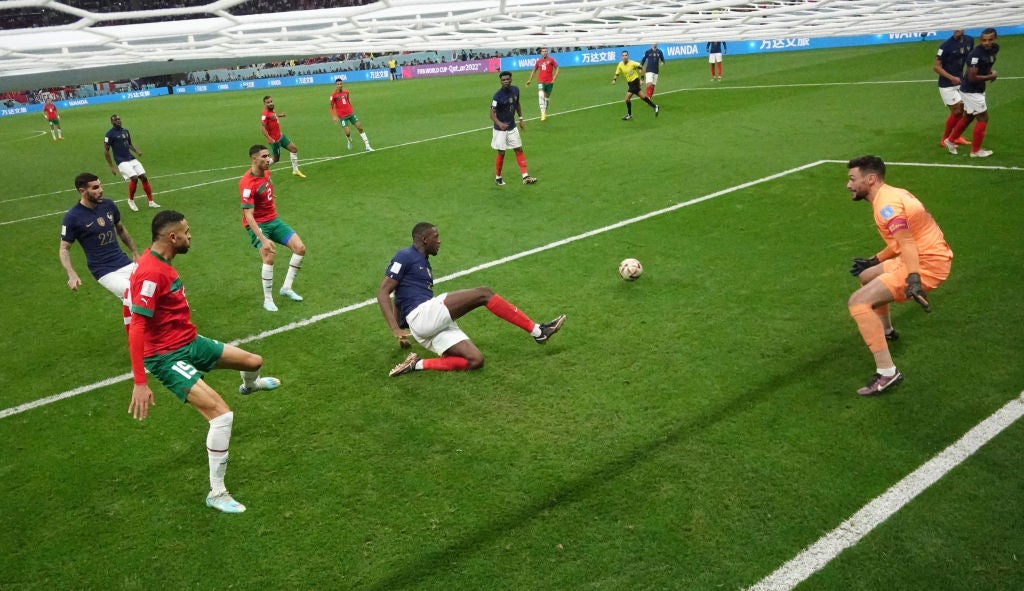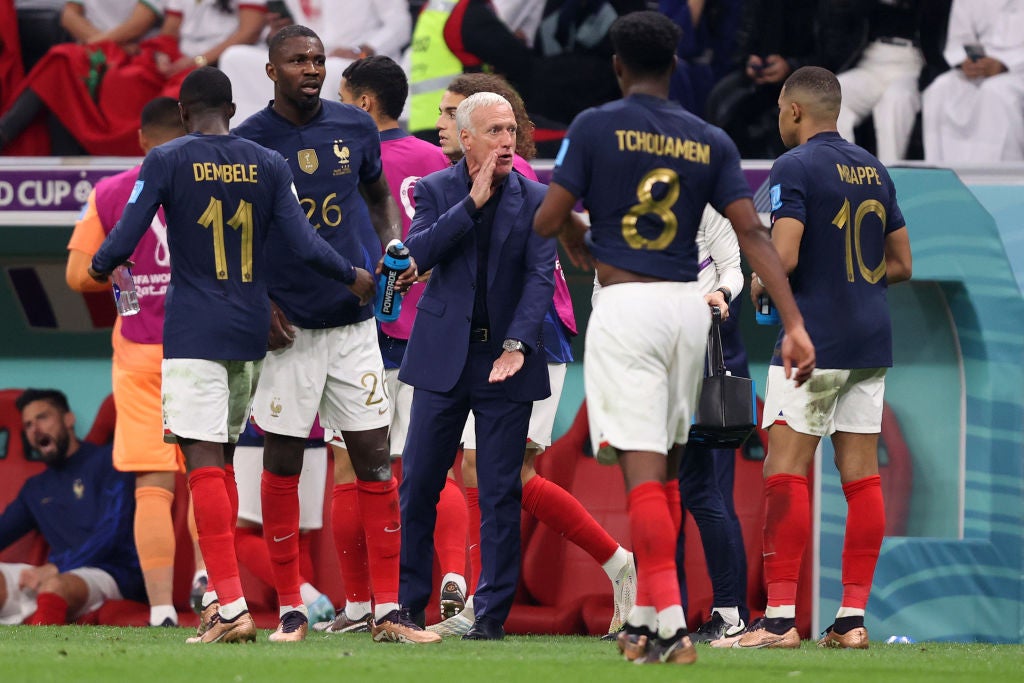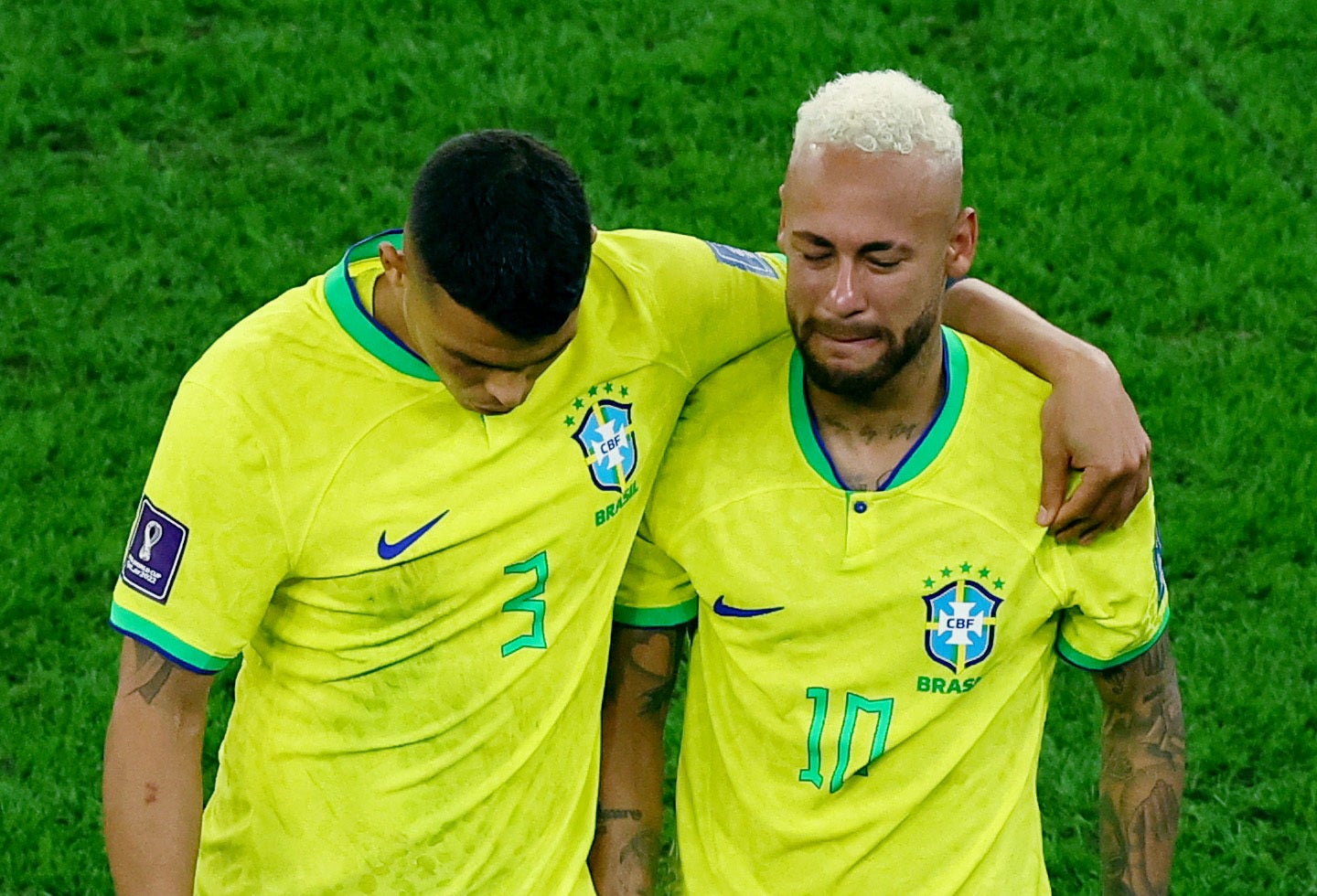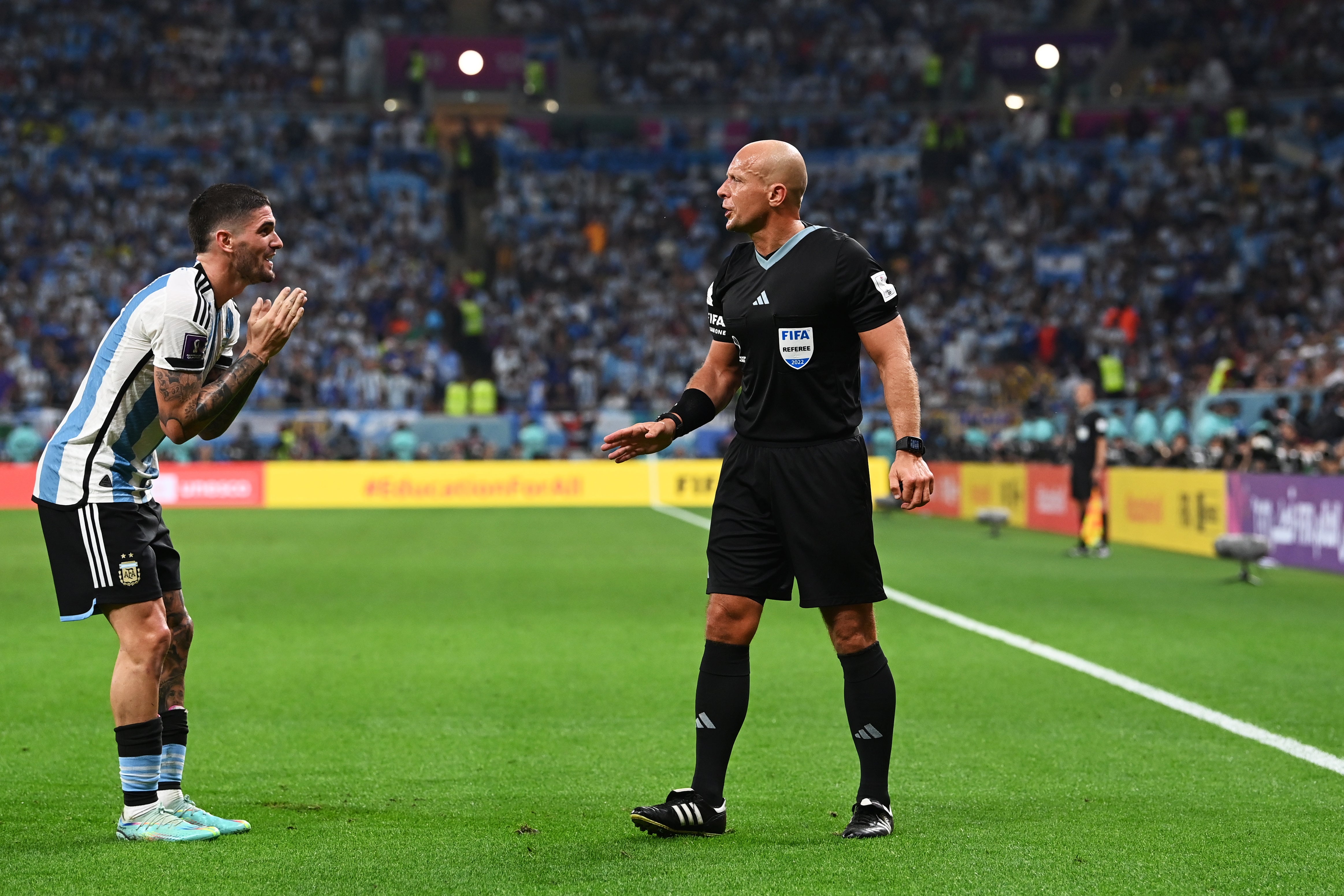World Cup final: The critical team selection decisions Lionel Scaloni and Didier Deschamps must make
Argentina
Scaloni has perhaps just a single principle decision to make, but that one call will ripple out and cause further tweaks to personnel, to the plan of thwarting France and to precisely how many people get to try and stop Kylian Mbappe.
The Albiceleste’s defeat to Saudi Arabia in their opening group game sparked a reshuffle in both formation and personnel, and since then it has been a slight case of a revolving cast in several areas across the pitch. Across the knockouts, Scaloni has lined up his team in a 4-3-3 and a 3-5-2, before switching to a fluid 4-4-2 in the semis to see off Croatia. Those latter two fixtures, and formations, are likely what he must decide between for facing France.
For starters, playing two up front has left Julian Alvarez much closer to Lionel Messi.
That helps the No10 by having someone occupy a defender, by doing lots of off-the-ball work for him, by having a powerful presence nearby to hold up or chase down the ball and, as four goals have demonstrated, by having another clinical option to pass to. Help Messi, and naturally it helps Argentina.
But behind them come two key decisions: match up France more or less three against three in midfield? Or try to repeat the approach against Croatia, overloading that central area to get 2-vs-1s defensively and stop any easy access into France’s attacking third?
The choice of how to defend in the middle is only part of the equation; the second big decision is how – or indeed whether – to thwart Mbappe specifically. Going 4-4-2 means it’ll just be Nahuel Molina’s job to keep tabs on him. Both Kyle Walker and Achraf Hakimi have had that job in the last two rounds, and both did fair jobs defensively for at least part of the game, even if the Moroccan had to eventually abandon a defence-first mentality as his team chased the game.
Going 3-5-2 means an extra centre-back covering the wing-back, but perhaps leaving Argentina able to be played through more easily in midfield. Not easily, as the three who start – surely Alexis Mac Allister, Enzo Fernandez and Rodrigo de Paul – will be full of running and confidence.
But adding Leandro Paredes gives both ball and territorial control, at the expense of one centre-back. It will be Paredes and 4-4-2, or Lisandro Martinez and 3-5-2.
The only other question then is who plays on the left of defence; in a back four it could remain semi-final starter Nicolas Tagliafico; in a wing-back system it might be the more adventurous and energetic Marcos Acuna.
France
If Scaloni has one big call to make which will yield further knock-on decisions, for Deschamps it’s rather more straightforward – albeit no less critical.
The French boss has a straight fight for one position, and may be forced into going without a key face for another.
At centre-back, Dayot Upamecano has been the starter pretty much throughout the tournament, firstly alongside Ibrahima Konate and then beside Raphael Varane, once the Manchester United man recovered from injury. But while Upamecano has been ponderous at times and a little too easily beaten, Konate has been virtually flawless – and was again in the semi-final, when replacing his stricken former Leipzig teammate.
Deschamps has shown reluctance well before this tournament to change a winning formula, but the gap between his go-to starter and the man pushing for his place has been very noticeable over the last couple of weeks. Konate, truth be told, deserves to start. Upamecano’s health may ultimately be the deciding factor, meaning Deschamps doesn’t have to outright pick and choose between them.
The other question is an easier one: Adrien Rabiot will come back into midfield if fully fit. He has been exceptional, while France’s midfield has lacked defensive balance and an ability to control play quite as well in his absence.
Illness, rather than injury, has been the concern for France in the buildup. Some reports have suggested that as well as Rabiot and Upamecano, each of Konate, Varane and winger Kingsley Coman have also all been unwell. But with a place in the World Cup final at stake, there’s surely no chance any will succumb to missing out unless energy levels or the risk of infecting others is the problem.
Recommended
As such, it’s really just a pick at centre-back which Deschamps may have a sleepless night over.
Given whichever name he lands on will be tasked – alongside Varane – to ultimately stopping Messi, there’s every chance his one, simple decision is actually the one, critical decision which could shape the destiny and destination of the most famous trophy in football.
Source: Read Full Article

